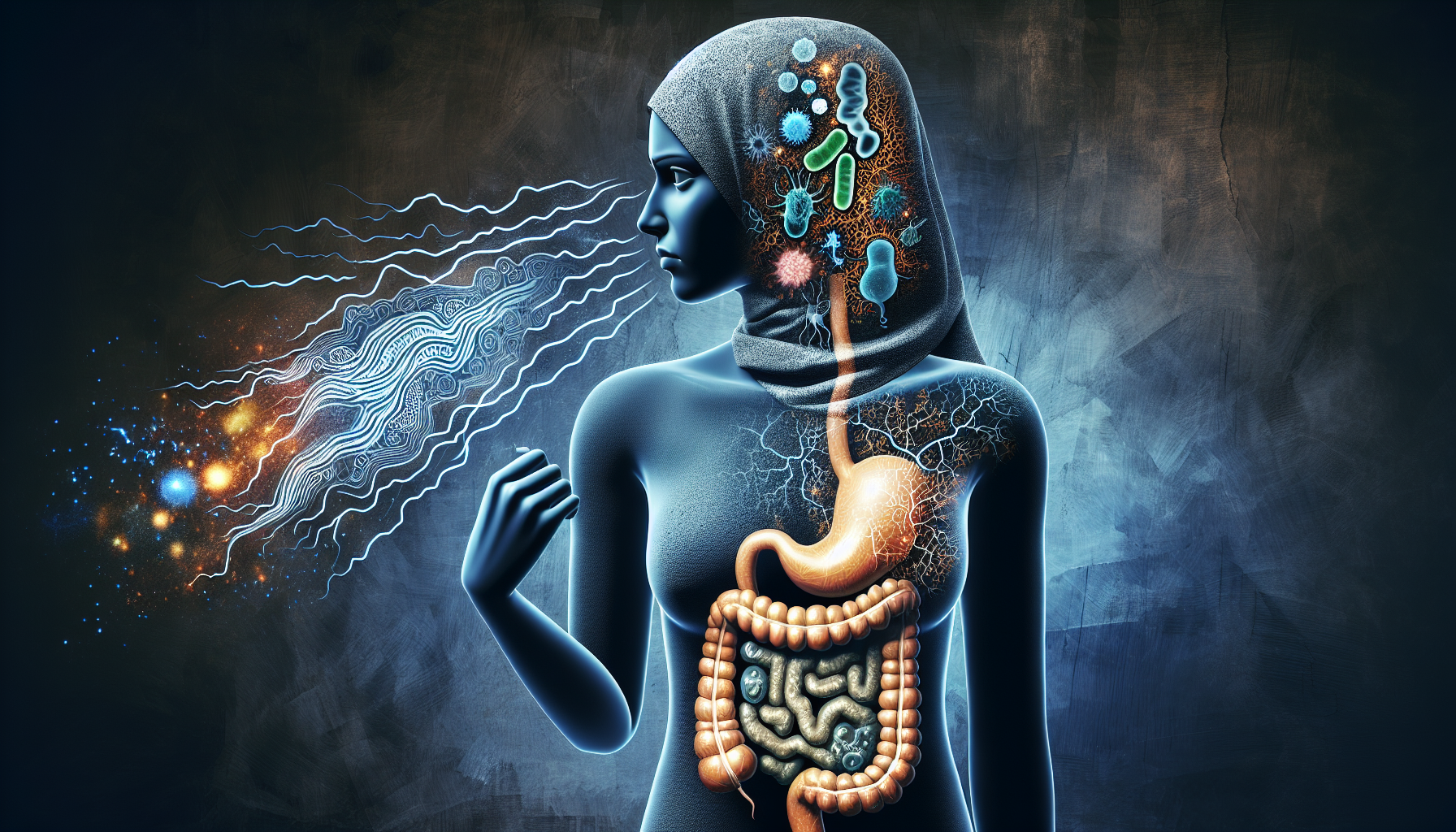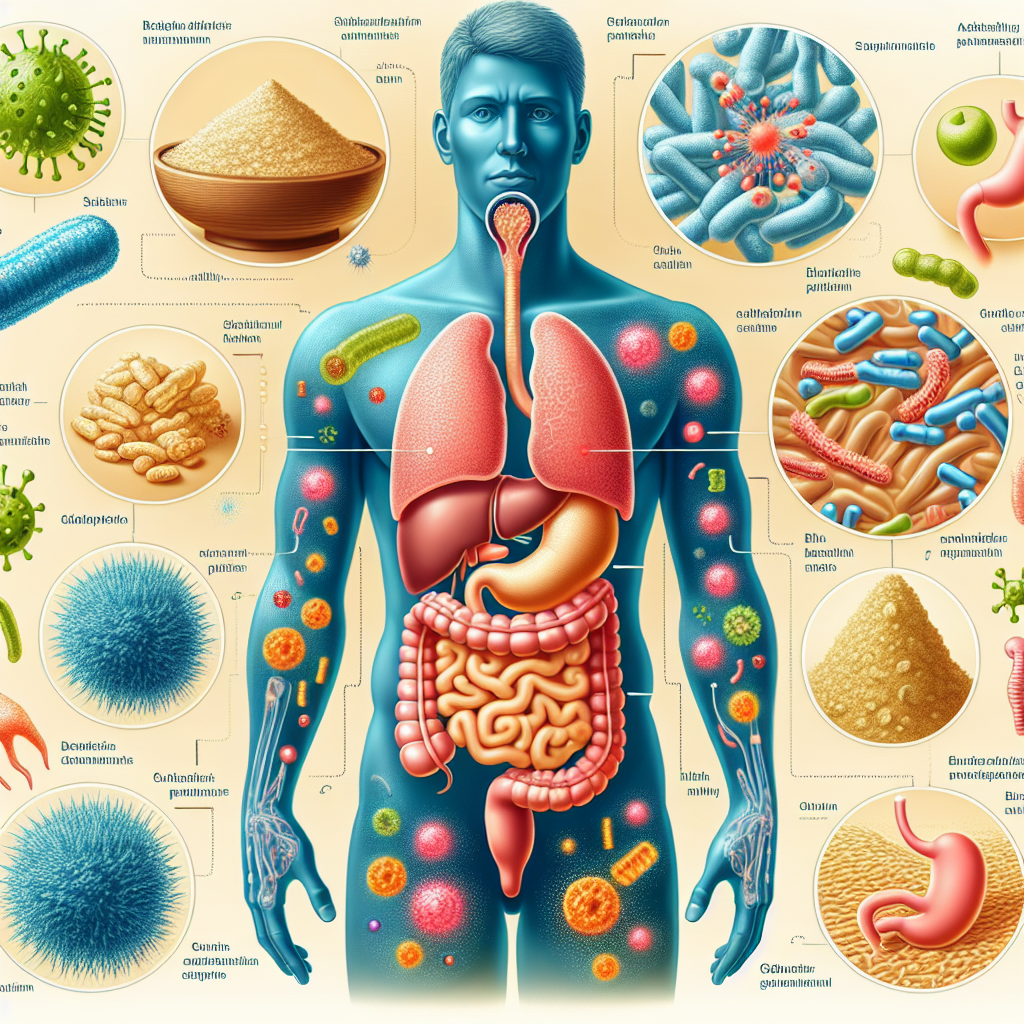Chronic stress is an insidious companion of modern life, impacting our health in myriad ways. One of the less visible but critically important effects of prolonged stress is its influence on our gut microbiota composition. The gut microbiota, also known as gut flora, is the complex community of microorganisms that live in the digestive tracts of humans and other animals. Recent research has uncovered that stress can significantly alter this internal ecosystem, with consequences that may affect overall health and wellness.
Understanding Gut Microbiota
Before delving into the effects of stress, it’s essential to understand what constitutes a healthy gut microbiota. A balanced gut microbiome is teeming with a variety of microorganisms, including bacteria, viruses, fungi, and protozoa. These organisms play a crucial role in digestion, immune function, and even mental health, as part of the gut-brain axis.
A healthy gut microbiota assists in the breakdown of food, the absorption of nutrients, and the production of essential vitamins. It also acts as a protective barrier against pathogens and helps to train the immune system to distinguish between friends and foes. The diversity and abundance of microbial species are indicators of gut health.
The Impact of Chronic Stress
Chronic stress triggers the body’s fight or flight response, releasing a cascade of hormones, including cortisol and adrenaline. These hormones prepare the body to handle perceived threats but, when released continuously, can have detrimental effects, including on the gut microbiota.
Stress can alter the composition and function of the gut microbiota, leading to a decrease in microbial diversity and an imbalance known as dysbiosis. Dysbiosis may contribute to a range of health issues, from digestive disorders to mental health conditions. For those looking to support their digestive health, understanding the link between stress and gut microbiota is crucial.
Gut Permeability
Under stress, the gut can become more permeable, sometimes referred to as ‘leaky gut’. This increased permeability allows bacteria and toxins to pass into the bloodstream, potentially triggering inflammation and immune responses.
Microbial Imbalance
Stress can favor the growth of certain harmful bacteria at the expense of beneficial ones. This imbalance can impair digestion and nutrient absorption, leading to symptoms like bloating, gas, and irregular bowel movements.
Immune System Modulation
Given that a significant portion of the immune system is located in the gut, an altered microbiota can lead to an improperly functioning immune system. This can manifest as an increased susceptibility to infections, allergies, and autoimmune diseases.
Strategies for Managing Stress and Supporting Gut Health
Addressing chronic stress is a multifaceted endeavor that often requires lifestyle changes, dietary adjustments, and sometimes professional help. Here are some strategies to combat the effects of stress on gut health:
Lifestyle Interventions
Regular physical activity, adequate sleep, and mindfulness techniques like meditation can help manage stress levels. These practices not only reduce the production of stress hormones but also promote a healthier gut environment.
Dietary Approaches
A diet rich in fiber, fermented foods, and a variety of plant-based foods can help nourish and support a diverse gut microbiota. Limiting processed foods, high-sugar diets, and excessive alcohol is also advised. To understand more about the role of diet, one might explore the connection between probiotic and prebiotic therapies.
Probiotic and Prebiotic Supplementation
Probiotics are live beneficial bacteria that can help restore balance to the gut microbiota. Prebiotics are fibers that feed these beneficial bacteria. Together, they can support gut health and potentially mitigate the effects of stress on the microbiome.
Psychological Support
For some, psychological interventions such as cognitive-behavioral therapy (CBT) or counseling can be effective in managing chronic stress. These approaches can provide tools to cope with stressors and reduce their impact on the body.
External Resources for Deeper Understanding
There are several niche resources available that delve deeper into the topics of stress, gut health, and their interplay:
- A comprehensive review on the gut-brain axis provided by a peer-reviewed journal article, offering insights into how stress-related disorders affect the gastrointestinal tract.
- An in-depth analysis of gut permeability and its implications for health in a specialized medical journal.
- A scholarly article focusing on the role of diet in shaping gut microbiota, published in a nutrition science journal.
Research and Advances
As research into the gut microbiota continues, scientists are uncovering the nuanced ways in which stress affects this complex system. For instance, studies have shown that certain probiotics can buffer the gut against the impacts of stress, suggesting potential therapeutic avenues.
Additionally, there is growing interest in personalized nutrition to combat stress-induced dysbiosis. This approach tailors dietary recommendations to an individual’s unique gut microbiota profile, which could be especially beneficial for conditions like irritable bowel syndrome.
Conclusion
The relationship between chronic stress and gut microbiota composition is complex and multifaceted. By adopting stress-reduction strategies, nurturing gut health through diet and lifestyle, and seeking appropriate medical support when necessary, individuals can protect their gut microbiota and promote overall well-being.
As we continue to understand more about the gut-brain axis and the intricate ways our mental state affects our physical health, it becomes clear that caring for our gut microbiota is a critical piece of the puzzle in managing stress and maintaining health.



